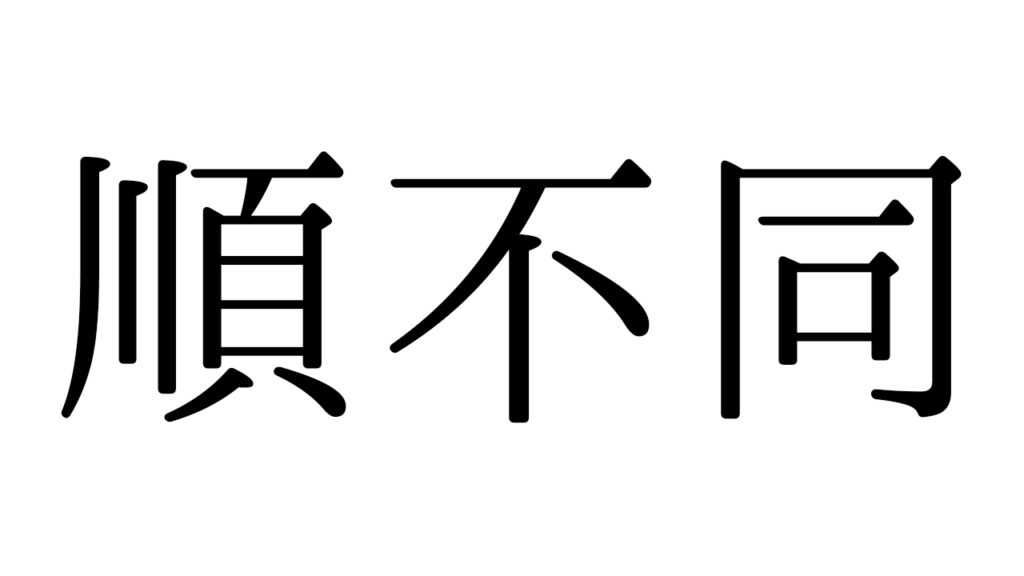When order doesn’t matter—but clarity still does
You may have stumbled across the Japanese term “junfudō” in documents, books, or even online discussions and paused to wonder: What does this actually mean?
In this article, we’ll break down the meaning of junfudō, explain when and how to use it, and highlight its key synonyms and antonyms—so you can apply it correctly in both casual and professional settings.
The Meaning of “Junfudō”
At its core, junfudō (順不同) means “no particular order” or “not in sequence.” It’s used to indicate that the order of items in a list or series is not fixed, and that rearranging them has no impact on meaning or importance.
This phrase is often used in writing and speech to clarify that no ranking or priority is implied.
Common Use Cases
- “The names are listed in junfudō.”
→ No hierarchy is implied; it’s not alphabetical or based on rank. - “We’ll take questions from the audience in junfudō.”
→ Anyone can ask at any time, no specific order.
It’s a simple way to emphasize neutrality and flexibility in sequencing.
Synonyms of Junfudō
While there’s no perfect one-word equivalent in English, similar expressions include:
- In random order
- Arbitrary order
- No particular sequence
- Order does not matter
These terms all convey that items are equally important and not arranged by importance, time, or relevance.
Antonyms: When Order Does Matter
In contrast, the opposite of junfudō would be terms that require a specific order, such as:
- In sequence
- Fixed order
- Chronological order
- Ranked
These are used in contexts where the position or sequence of items is meaningful—like instructions, steps in a process, or ranking systems.
For example:
- “Follow the recipe steps in order”
- “Candidates are listed by score”
Using junfudō in these situations would be misleading.
Why Understanding Junfudō Matters
Knowing when to use junfudō can make your communication:
- More precise
- Less hierarchical
- Easier to understand
Whether you’re writing an email, listing project contributors, or organizing agenda items, this term helps ensure that readers or listeners know not to read into the order of presentation.
Conclusion
Junfudō is a useful phrase that brings clarity and fairness to your communication—especially when the order of things isn’t meant to imply value or priority.
By understanding its meaning, synonyms, and antonyms, you’ll be better equipped to express structure (or the lack thereof) in both Japanese and English contexts.


